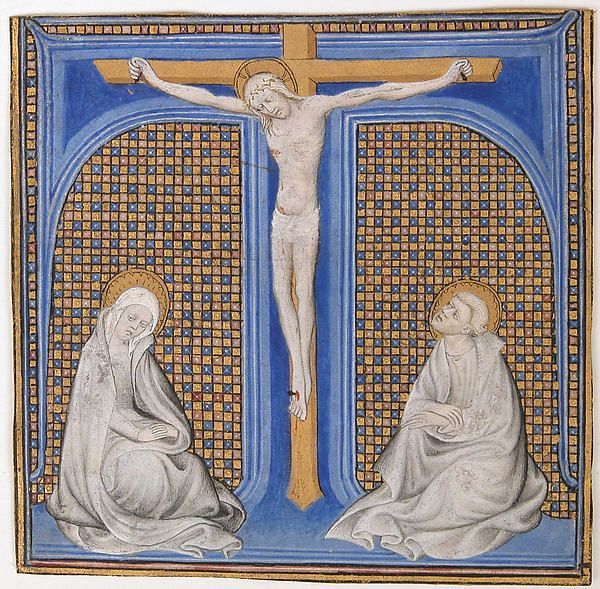Principle and Foundation
3rd Part
Review last meditation: A good meditation does not need to cover many things. Even if you remain thinking about one idea. Remain there if you find good material.
Points for Consideration:
The other things on the face of the earth are created for man to help him in attaining the end for which he is created. Man is to make use of them, in as far as they help him in the attainment of his end, and he must rid himself of them in as far as they prove a hindrance to him.
This is the importance of indifference – to possess self-control in order to choose the greater good; not being enslaved, distracted, sidetracked by things less than God.
Saint Augustine said: “My heart is restless until it finds rest in God.”
Every creature has an end:
Those creatures that have an intellect, move themselves to an end; because they have dominion over their actions through their free-will. Other creatures without intellect, do not move themselves but are moved, by their natural instinct. They do not know or understand the concept of end, and consequently cannot ordain anything to an end, yet they are given instinct by which they move. It is proper for those creatures endowed with an intellect to move themselves to an end. For the other creatures, it is proper for them to be directed or led by another.
(I-II, q1a3)
This is the uniqueness of the human being. Like all the other animals, man has a body. Unlike the others, man is able to know and to choose. He is created to know his end and to use his freedom to choose the end.
Why does God create different creatures?
Why do only some have intellects for now and free-will for choosing? This is a good question that can be answered in two ways. First, it is the prerogative of the creator. As the divine artist, God has decided. “Shall what be formed say to the one who formed it, ‘Why did you make me like this?'” (Rm9,20). Secondly, we can listen to the words of Saint Thomas Aquinas: God created a diversity of creatures so that what could not be perfectly represented by one thing, might be in a more perfect fashion represented by a variety of things in different ways. It is not bad that some creatures were and some were not endowed with intellect and will. Each creature glorifies God in their own unique way. Nevertheless, the rational animal (man) is more perfect than the irrational nature because man is able to know the Creator and he is able to choose the creature.
To be Indifference means to live correctly among other creatures:
When Saint Ignatius says, we are to make use of the other creatures in as far as they help attain the end, it means that a person must be free to use creatures in a way that they can help and not hinder. The intellect, by knowing, and the free will, by choosing, make it possible to obtain happiness and the final end. There must be indifference to all creatures. There must be a willingness to give up anything if it prevents one from reverencing the Creator. It is not to ignore the other creatures; but to live correctly among them. By indifference, all things are ordered to the Supreme Good.
All created things are good. The book of Genesis says: God saw that they were good. The human intellect judges in what way they are to be used. Food is good, in so far as it helps me get to the good which is more important than food – the most important being the salvation of my soul. Friendship is good, in so far as it helps. And the same for all creatures: we use them in as far as they help; they are to be rejected in as far as they prevent us from our end.
A rightly-ordered will is necessary which means the will has to be properly disposed. A person who behaves obstinately towards goodness, or who loves things in a disordered manner, cannot reach the end. He will put his final end and base all his actions on something finite, something that will not satisfy. Indifference to creates means to overcome self so there exists the freedom to choose the greatest good. Nothing is perfected unless it is duly prepared to receive a perfection (disposed).
…all men agree in tending towards happiness, they do not agree about the object that makes men happy (conclusion of I-II,q1). …all agree in desiring the last end: since all desire the fulfilment of their perfection and [happiness]. But as to the thing in which this [is realized], all men are not agreed as to their last end: since some desire riches as their consummate good; some, pleasure; others, something else. […] [I-II q 1 a 7]
Wealth cannot be man’s final end. Exterior things: food, drink, clothing, cars, houses…all these are desired because the assist people or help them to increase their quality of life. But they cannot be the final end — that which fully satisfies all man’s desires.
Honor can not be man’s final end: The virtuous person’s true reward is the happiness that comes from virtuous action. If they worked for honor, it would no longer be a virtue, but ambition. Besides, honor is more of a sign of excellence than the attainment of the final end.
To be famous is not man’s final end: Fame has no stability; in fact, it is easily ruined by false report. But the final end must be something that lasts forever and satisfies.
Power cannot be man’s final end: Although some may use power virtuously, in many other cases power is the source of man’s mistakes and suffering.
There are those who acquire wealth, honor, fame, and power. If they do not have indifference to these created things, the things which may be good in themselves became an evil for them because they serve as obstacles, preventing them from obtaining the final end of their lives.
Saint John of the Cross:
…an attachment to a creature makes a person equal to that creature;
Instead of the creature being there to help man, they may also become a hinderance …
the stronger the attachment, the closer is [one’s] likeness to the creature and the greater [the equality between them], for love effects a likeness between the lover and the loved…anyone who loves a creature, is as low as that creature and in some way even lower because love not only equates but even subjects the lover to the loved creature. (Ascent Carmel, Bk1,Ch4)
It is like the story of Jacob and Essah in the Old Testament. Serving creatures, Essah traded the greater good, his birthright, for the lesser. Creatures must be dominated so that they serve man and are of help to man.
All creatures considered in this way are nothing, and a person’s attachment to them are less than nothing since they serve as impediments and deprive the soul of being transformed in God…One who is in darkness does not comprehend the light, so neither will a person attached to creatures be able to comprehend God.(Ascent Carmel, Bk1,Ch4)
A person attached to the beauty of creatures is displeasing to God and is not capable of receiving the graces He wishes to give.
…all wisdom and human ability compared to God’s wisdom is ignorance…in God’s sight, those who think they have some wisdom are very ignorant: taking themselves for wise, they became fools (Rm1.22)…only those who set aside their own knowledge and walk in God’s service like unlearned children receive wisdom from God.
…all freedom of the world compared to the freedom of the Spirit of God is …captivity. Attachment to positions of honor and free reign of the appetites is like slavery because freedom cannot abide in a heart dominated by [the desire for things other than God].
…all wealth and glory of creation compared to the wealth that is God is like poverty…The person who loves and possesses these things…will be unable to attain the richness and glory of transformation in God.
…Divine Wisdom, with pity for souls that became ugly and poor because of their love for worldly things says (Proverbs 8,4-6,18-21): Be attentive little ones, to cunning and sagacity; be careful, listen because I want to speak of great things…The fruit you will find in me is better than gold and precious stones; enriching those who love me and to fill their treasures completely…God wishes to tell them that his riches are more precious, that the fruit found in them will be better than gold…and that what He begets in souls has greater value than silver, which signifies any possible affection experienced in this life.
Conclusion:
During this meditation, use your reasoning powers to reflect and to understand more deeply indifference to creatures.
To conclude the meditation, give thanks for any of the insights or graces you have received, then you may end with an Our Father.

Take, Lord,
and receive all my liberty, my memory, my understanding, and my entire will, all that I have and possess. Thou hast given all to me. To Thee, O Lord, I return it. All is Thine, dispose of it wholly according to Thy will. Give me Thy love and Thy grace, for this is sufficient for me.
(Spiritual Exercises #234. Louis Puhl SJ, Translation.)



